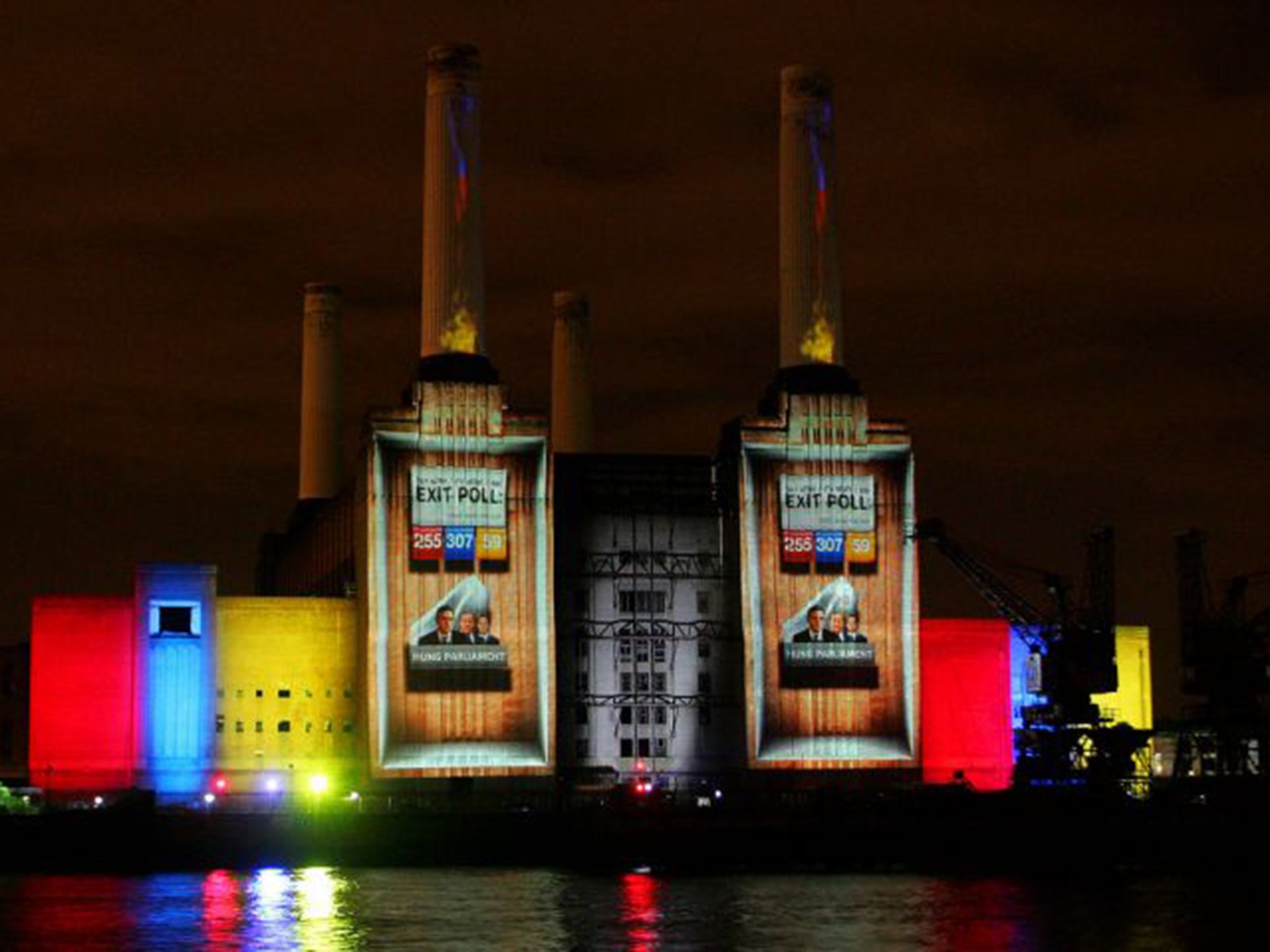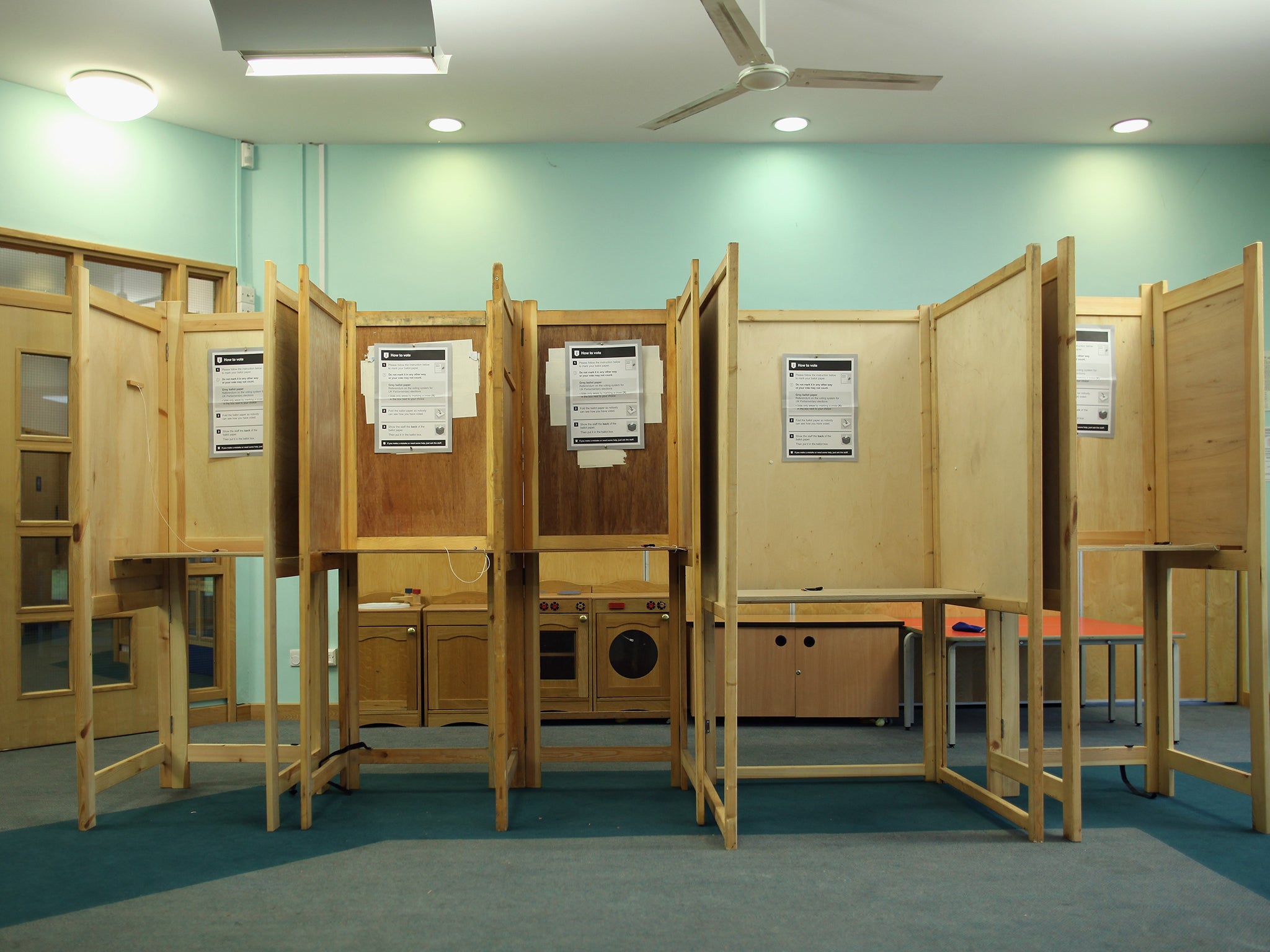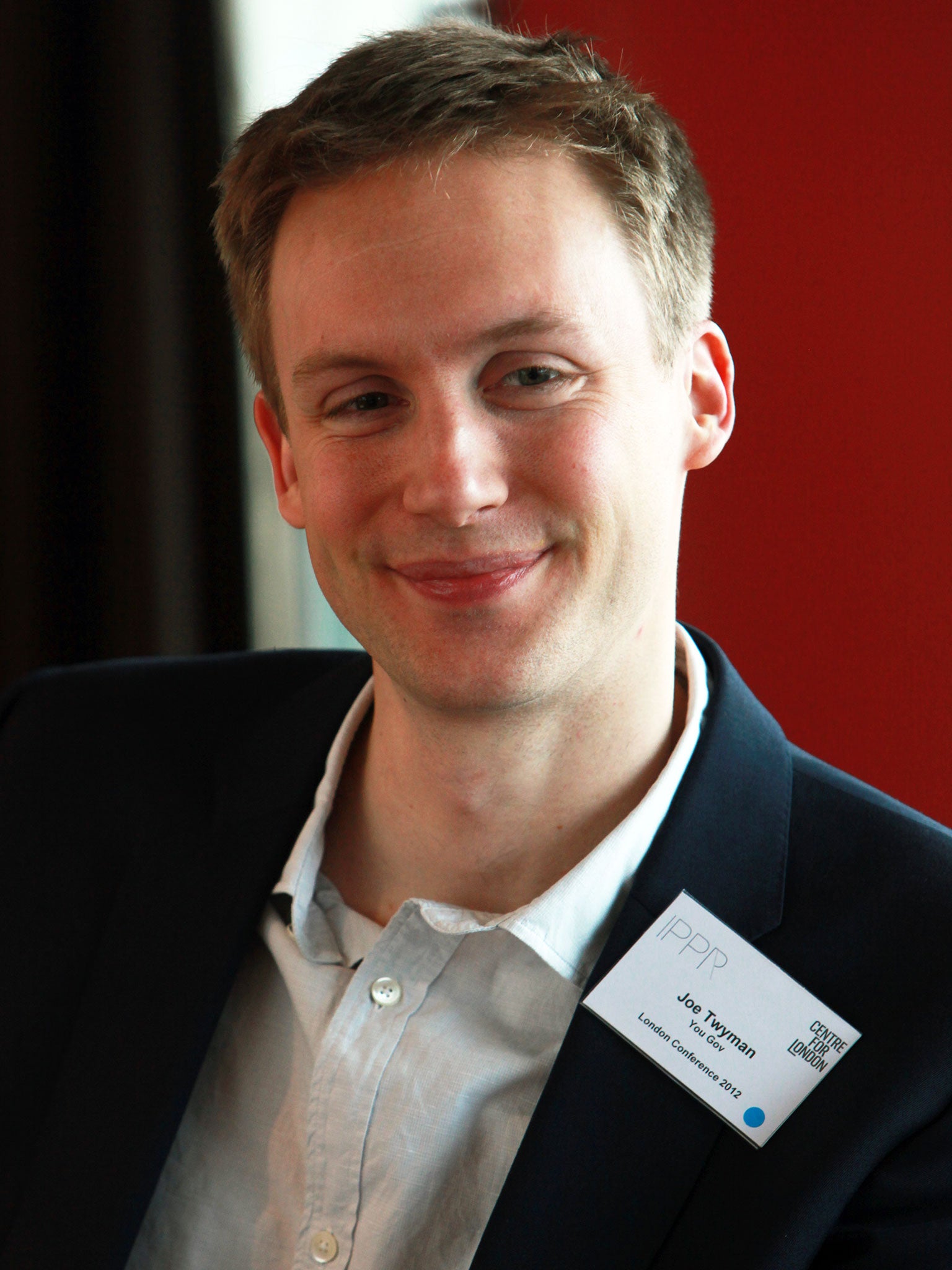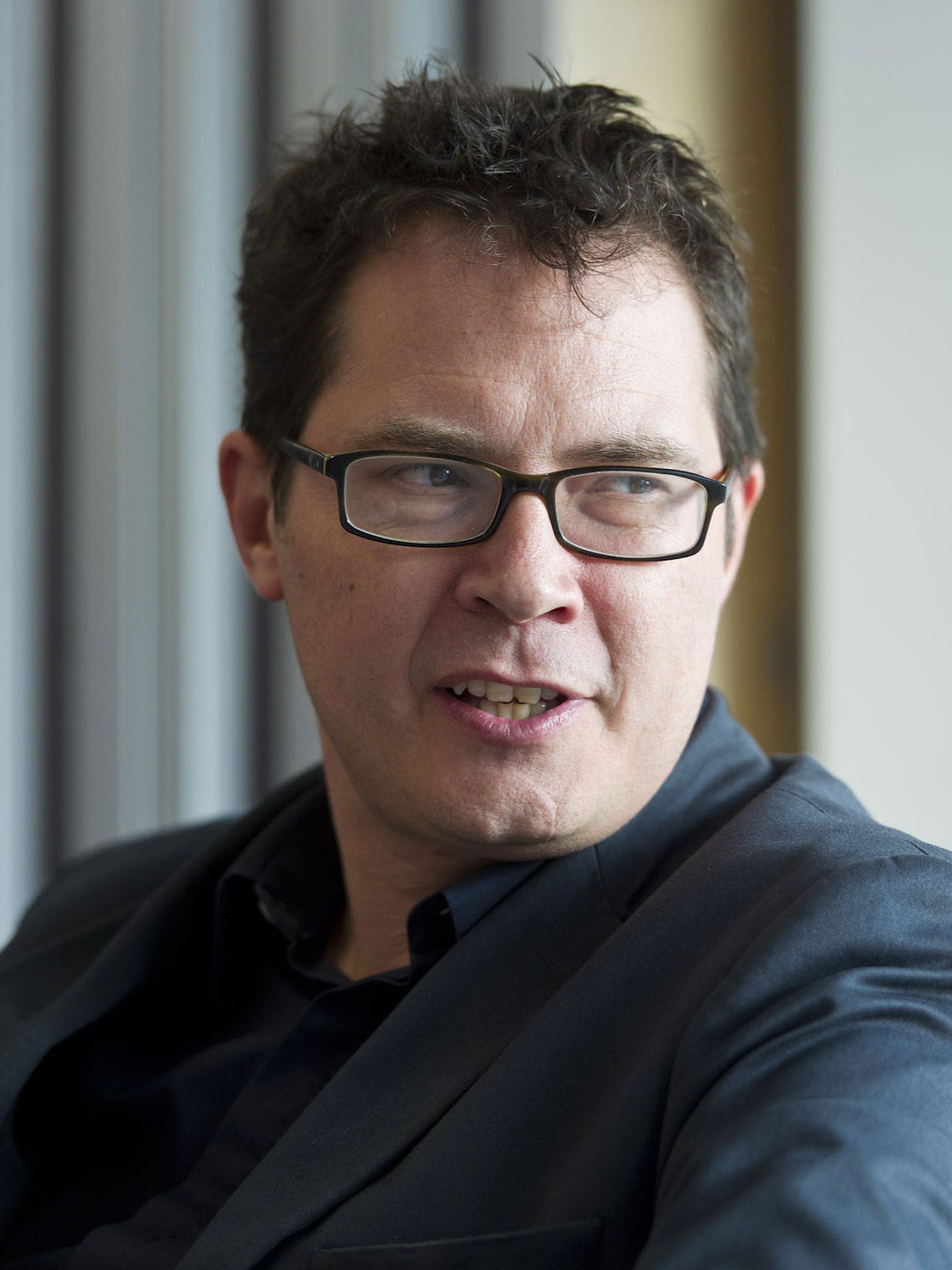Opinion polls: Believe them or not, they are here to stay
They may have been wrong in the past but techniques are improving all the time and we should take them seriously

Your support helps us to tell the story
From reproductive rights to climate change to Big Tech, The Independent is on the ground when the story is developing. Whether it's investigating the financials of Elon Musk's pro-Trump PAC or producing our latest documentary, 'The A Word', which shines a light on the American women fighting for reproductive rights, we know how important it is to parse out the facts from the messaging.
At such a critical moment in US history, we need reporters on the ground. Your donation allows us to keep sending journalists to speak to both sides of the story.
The Independent is trusted by Americans across the entire political spectrum. And unlike many other quality news outlets, we choose not to lock Americans out of our reporting and analysis with paywalls. We believe quality journalism should be available to everyone, paid for by those who can afford it.
Your support makes all the difference.These days you dodge chuggers on the high street. In the old days if someone with a clipboard tried to stop you they might have been an opinion pollster. From the early days of polling – George Gallup in America in 1935 and the academic institute Gesellschaft für Konsumforschung in Germany in 1936, now a global market research company called GfK – surveys were face-to-face. Either in the street or in people’s homes, which was considered more accurate, but more labour-intensive so more expensive.
Over the years a new, cheaper method of conducting interviews gained acceptance: by telephone. But since 2000 an even cheaper method has become established, that of conducting polls online.
The science of opinion polling has changed, partly to keep up with the technology, and partly in response to disasters such as the 1992 election in Britain, when most polls suggested that Labour would be the largest party in a hung parliament and the result was a small Conservative majority. Part of the reason was a swing to the Tories in the last few days, which only the latest polls started to pick up, but part of it was a failure by pollsters to realise that some people who said they would vote Labour didn’t vote, and others who wouldn’t say how they would vote voted Tory.
So it is more complicated than asking people how they intend to vote and trying to obtain a sample that represents the whole country: pollsters also have to model behaviour and make assumptions about whether people will do what they say, and what people who won’t say will do.
Generally, it is surprising how accurate the polls taken in the few days before an election are. But the ones being carried out now may not reflect the outcome because stuff will happen between now and polling day. People change their minds – ICM’s poll after the Cameron-Miliband programme last week, for example, found 8 per cent of those who saw it changed how they intended to vote (slightly in Labour’s favour).
Each pollster uses different methods, so that some tend to produce figures that are better for Labour (TNS, Opinium, ComRes phone polls and Survation) while others tend to produce pro-Tory figures (Ipsos Mori, ICM and Populus).

There is no way of knowing which is closer to the truth until the votes are in. All the polls underestimated the victory for the “No” vote in the Scottish referendum in September. The last polls suggested that “No” would win by 5 percentage points; it won by an 11-point margin.
Despite that, most common doubts about polls are mistaken. People say they only ask 1,000 people. But humans are predictable enough that a sample can be extrapolated, and 1,000 is usually enough. Some are doubtful because no one has asked them. The huge increase in polling in this election is mainly internet polls, and you can choose to go on an online panel. Otherwise your chance of getting a cold call is low.
Others say polls are adjusted to produce the answers pollsters want, and that results vary. All pollsters use weightings to boost responses from under-represented groups – they do this because they have a commercial incentive to get it right. You would expect polls to be within three percentage points of the right answer 19 times out of 20 – but variability is not the same as inaccuracy. “If a statistic looks interesting or unusual it is probably wrong.” (Twyman’s Law.) Look at the trend.
Those who think the bookies are a better bet should remember that at this stage last time the betting markets suggested the Conservatives would win a majority, whereas the polls pointed to a hung parliament.
And they’re off! Introducing our general election poll of pollsters
Look out for The Independent on Sunday Poll of Pollsters every week of the campaign. We will be asking the bosses of the 10 polling companies active in Great Britain during this election for their predictions of the result.
Some shy away from making actual forecasts, as opposed to describing the state of opinion at the time. Lord Ashcroft always says: “My polls are snapshots not predictions.”
Others are braver. In our first Poll of Pollsters at the start of this year, Joe Twyman of YouGov looked as if he was going to duck it, saying, “I predict it will be close,” but then said: “Gun to my head? Labour minority government.”
And enough of them made specific enough forecasts in January to allow us to combine them into an average prediction for the House of Commons that will be elected on 7 May: Labour 301 seats, Conservative 273, Lib Dem 26, SNP 22, Ukip 5, Plaid Cymru 3, Green 1, Respect 1. In other words, a hung parliament in which Labour and the Lib Dems could combine to form a government.

The Independent on Sunday will reveal next weekend how their predictions have changed, and how they see the state of the parties as the campaign kicks off.
Introducing our panel of pollsters
Andrew Hawkins Chairman, ComRes, The Independent on Sunday’s pollster since it was founded as Communicate Research in 2003. In January he predicted Labour would be the largest party, with a small majority.
Martin Boon Director, ICM, the company that was the most accurate pollster in 2010. In January he predicted Labour on 290 seats, 10 ahead of the Tories, with Lib Dems and Ukip neck and neck on 14 per cent of the vote but with 35 and two seats respectively.
James Endersby Managing director, Opinium, one of the newest polling companies, founded in 2007. In January he put Labour on 320 seats, just short of a majority.
Michelle Harrison Head of political and social, TNS, formerly Taylor Nelson Sofres with a history going back to the 1940s. She said: “The disconnect with the major political parties is more interesting than the horse race.”
Damian Lyons Lowe Chief executive, Survation, another new entrant set up in 2007. In January he expected Labour to be the largest party in a hung parliament, by 40 to 50 seats over the Conservatives.
Nick Moon Managing director, social research, GfK, which took over longstanding British pollster NOP in 2005. Moon was the only one who in January predicted that the Tories would be the largest party. “Probably.”

Rick Nye Managing director, politics, Populus, a market research company that was founded in 2003. In January Nye expected a hung parliament in which Labour would win most seats – but not necessarily most votes.
Ben Page Chief executive, Ipsos MORI, the MORI part of which has been polling in Britain since 1969, and which was taken over by the French market research company Ipsos in 2005. Page said it was a “mug’s game” to make predictions four months before an election, and quoted Philip Tetlock, who found that forecasts by experts were only slightly better than throwing dice.
Joe Twyman Head of political and social research, YouGov, which was set up by Peter Kellner, Stephan Shakespeare and Nadhim Zahawi (who is now a Tory MP) in 2000. YouGov was the first company to show that internet polling could work in the UK. Twyman said in January: “Gun to my head? Labour minority government.”
Join our commenting forum
Join thought-provoking conversations, follow other Independent readers and see their replies
Comments